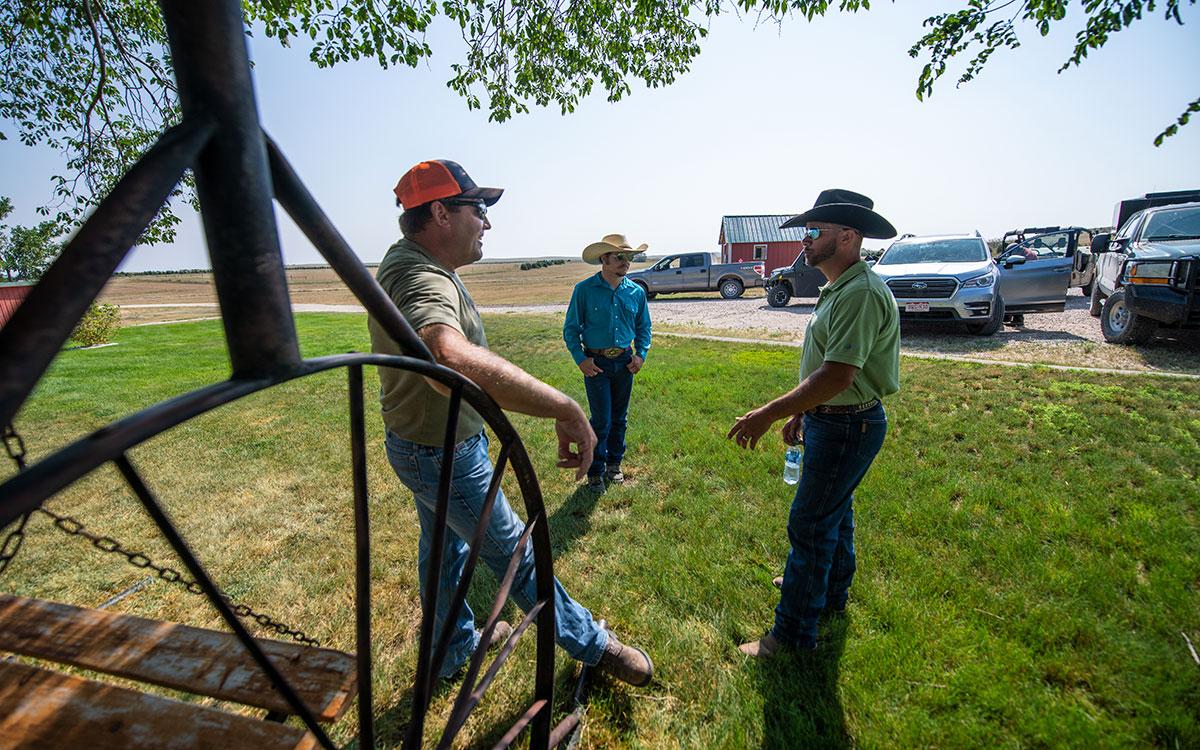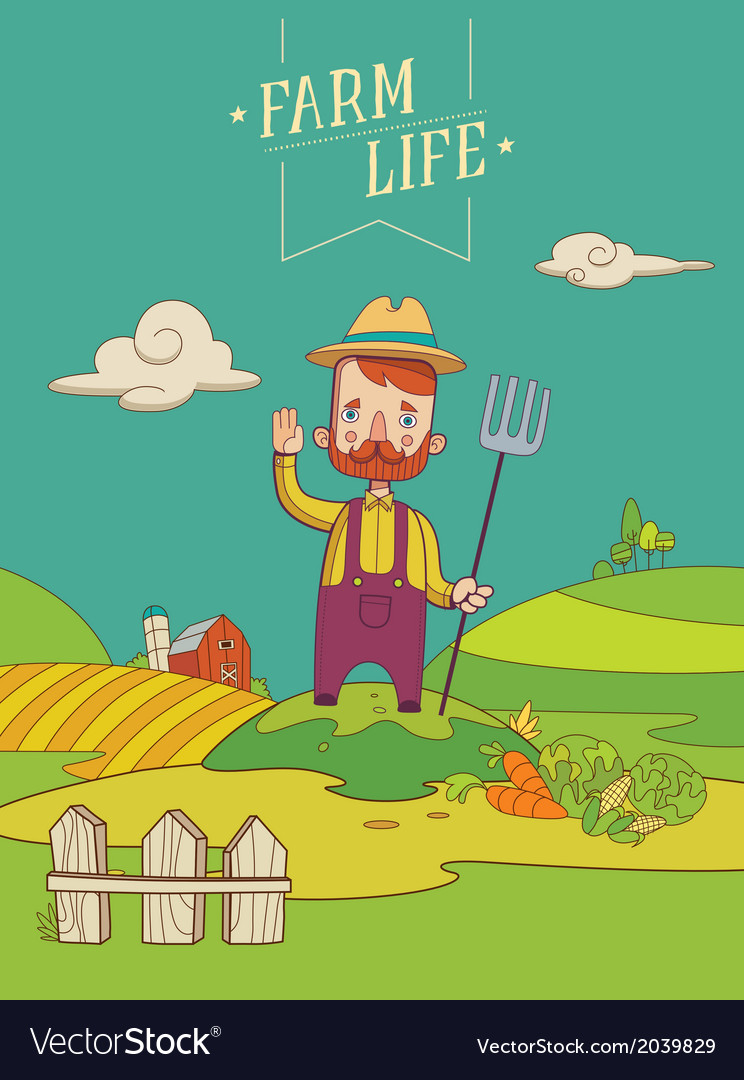When we think about farming, we often picture wide-open fields, lush greenery, and the simple life. But behind the scenes, farmers are grappling with a growing concern: their health. Healthy farmers aren’t just a nice-to-have—they’re a must-have for our food supply, environmental sustainability, and the future of agriculture itself. So, let’s dive into this topic, shall we?
The term "healthy farmer" might sound like an oxymoron to some. After all, farming is a tough gig. Long hours under the sun, physical labor, and unpredictable weather conditions can take a toll on anyone. But here’s the kicker: if farmers aren’t healthy, neither is the food we eat. It’s a domino effect that affects everyone, from the farm to the dinner table.
This article isn’t just about shedding light on the struggles of farmers; it’s about empowering them to prioritize their well-being. Whether you’re a farmer, someone who cares about food security, or simply curious about the backbone of our society, this read is for you. So buckle up, because we’re about to explore the world of healthy farming in a way that’s engaging, informative, and actionable.
Read also:Kobe Bryant The Rise Of A Legend In 1996
Why Healthy Farmers Matter
Let’s get real for a sec. Farmers are the backbone of our economy, feeding billions of people worldwide. But here’s the thing: they’re also one of the most overlooked groups when it comes to health and well-being. According to the World Health Organization, farmers face unique challenges that put their health at risk, from exposure to pesticides to repetitive strain injuries.
But why should we care? Well, here’s the deal: if farmers aren’t healthy, food production suffers. And when food production suffers, everyone feels the pinch. From rising food prices to food shortages, the ripple effect is massive. Plus, healthier farmers mean more sustainable farming practices, better crop yields, and a brighter future for agriculture as a whole.
Key Statistics That Paint the Picture
Here’s a snapshot of what the data tells us:
- Over 40% of farmers report chronic health issues, ranging from musculoskeletal disorders to respiratory problems.
- Farmers are 2-3 times more likely to suffer from mental health issues compared to the general population.
- Exposure to pesticides is linked to a higher risk of diseases like Parkinson’s and certain cancers.
These stats aren’t just numbers—they’re a wake-up call for all of us to take action. Healthy farmers aren’t just good for them; they’re good for all of us.
Understanding the Challenges of Being a Farmer
Farming might seem idyllic, but the reality is far from it. Farmers deal with a host of challenges that make maintaining their health a struggle. From the physical demands of the job to the mental toll of financial uncertainty, it’s no wonder so many farmers are at risk.
Physical Demands of Farming
Let’s talk about the physical side of things. Farming involves a lot of heavy lifting, repetitive motions, and long hours standing or bending. Over time, this can lead to serious health issues like back pain, joint problems, and even chronic fatigue.
Read also:Jon Bon Jovi A Testament Of Love In I Will Always Love You
But it’s not just the physical labor that’s tough. Farmers are also exposed to extreme weather conditions, from scorching heat to freezing cold. This can lead to heat exhaustion, frostbite, and other weather-related health issues.
Mental Health Struggles
Then there’s the mental side of things. Farmers often face financial uncertainty, market fluctuations, and the stress of running a business. Add to that the isolation of living in rural areas, and it’s no wonder mental health issues are so prevalent in the farming community.
According to a study by the American Farm Bureau Federation, over 60% of farmers report feeling stressed or anxious on a regular basis. And yet, many don’t seek help due to stigma or lack of access to mental health resources.
How to Promote Health Among Farmers
Now that we’ve talked about the challenges, let’s shift gears and talk about solutions. Promoting health among farmers isn’t just about fixing problems—it’s about preventing them in the first place. Here are some strategies that can make a real difference:
Education and Awareness
One of the biggest barriers to health for farmers is a lack of awareness. Many farmers simply don’t know about the risks they face or how to mitigate them. That’s where education comes in. Workshops, training sessions, and online resources can help farmers understand the importance of health and safety.
Access to Healthcare
Another big issue is access to healthcare. Many farmers live in rural areas where medical facilities are scarce. Telemedicine, mobile clinics, and partnerships with local healthcare providers can help bridge this gap.
Encouraging Healthy Habits
Finally, promoting healthy habits can go a long way. From eating a balanced diet to getting regular exercise, small changes can add up to big results. Farmers can also benefit from stress management techniques like meditation, yoga, or even just taking a break once in a while.
The Role of Technology in Healthy Farming
Technology is transforming the farming industry in more ways than one. From precision agriculture to wearable tech, there are plenty of tools that can help farmers stay healthy and productive.
Precision Agriculture
Precision agriculture uses data and technology to optimize farming practices. By monitoring soil health, crop growth, and weather patterns, farmers can make informed decisions that reduce stress and improve outcomes.
Wearable Tech
Wearable tech like fitness trackers and smartwatches can help farmers monitor their health in real-time. These devices can track everything from heart rate to sleep patterns, giving farmers valuable insights into their well-being.
Community Support for Farmers
No one should face health challenges alone, and that’s especially true for farmers. Community support can play a vital role in promoting health and well-being among farmers.
Farmers’ Co-ops
Farmers’ co-ops are a great way for farmers to come together and share resources, knowledge, and support. These groups can provide everything from mental health counseling to group exercise classes.
Local Initiatives
Local initiatives like farmers’ markets, community gardens, and health fairs can also make a difference. These events not only promote health but also strengthen the bond between farmers and their communities.
Government Policies and Programs
Government policies and programs can also play a role in promoting healthy farming. From subsidies for sustainable practices to grants for health initiatives, there are plenty of ways policymakers can support farmers.
Subsidies for Sustainable Practices
Sustainable farming practices not only benefit the environment but also the health of farmers. Subsidies for things like organic farming, crop rotation, and water conservation can help farmers adopt healthier practices.
Grants for Health Initiatives
Grants for health initiatives can also make a big difference. These funds can be used to set up health clinics, hire wellness coaches, or even provide mental health support for farmers.
Case Studies of Healthy Farmers
Let’s take a look at some real-life examples of farmers who’ve prioritized their health and reaped the benefits.
John Doe: The Farmer Who Embraced Yoga
John Doe is a farmer from Iowa who struggled with chronic back pain for years. After trying everything from medication to physical therapy, he decided to give yoga a shot. Within a few months, he noticed a significant improvement in his flexibility, strength, and overall well-being.
Jane Smith: The Farmer Who Went Organic
Jane Smith is a farmer from Texas who switched to organic farming after learning about the health risks of pesticides. Not only did she feel better physically, but she also noticed an improvement in her mental health. “It’s amazing how much of a difference small changes can make,” she says.
The Future of Healthy Farming
So, where do we go from here? The future of healthy farming looks bright, thanks to advancements in technology, increased awareness, and growing support from communities and governments. But there’s still work to be done.
We need to continue pushing for policies that support farmers’ health, invest in research to better understand the challenges they face, and promote education and awareness at every level. Most importantly, we need to recognize the vital role that farmers play in our society and support them in every way we can.
Conclusion
In conclusion, healthy farmers are the key to a sustainable future. By addressing the challenges they face and promoting health and well-being, we can ensure that farmers continue to thrive and feed the world for generations to come.
So, what can you do to help? Whether it’s supporting local farmers, advocating for policies that promote health, or simply spreading awareness, every little bit helps. Together, we can make a difference and create a healthier, more sustainable future for all.
Now it’s your turn. Leave a comment below and let us know what you think about the importance of healthy farmers. And don’t forget to share this article with your friends and family. The more people who know about this issue, the better!
Table of Contents
- Why Healthy Farmers Matter
- Understanding the Challenges of Being a Farmer
- How to Promote Health Among Farmers
- The Role of Technology in Healthy Farming
- Community Support for Farmers
- Government Policies and Programs
- Case Studies of Healthy Farmers
- The Future of Healthy Farming
- Conclusion


